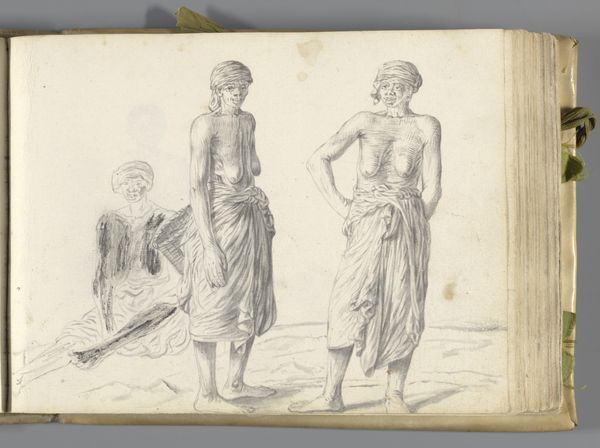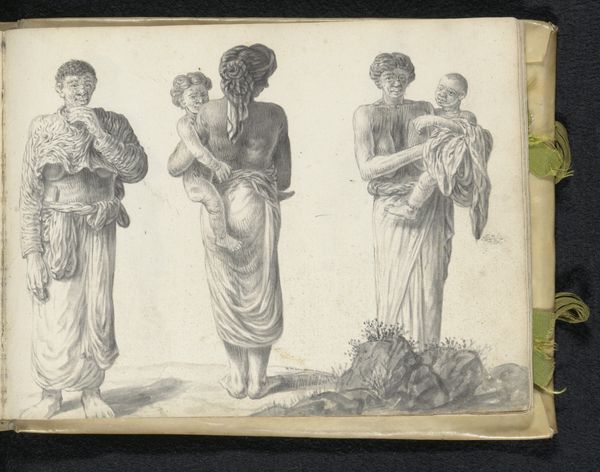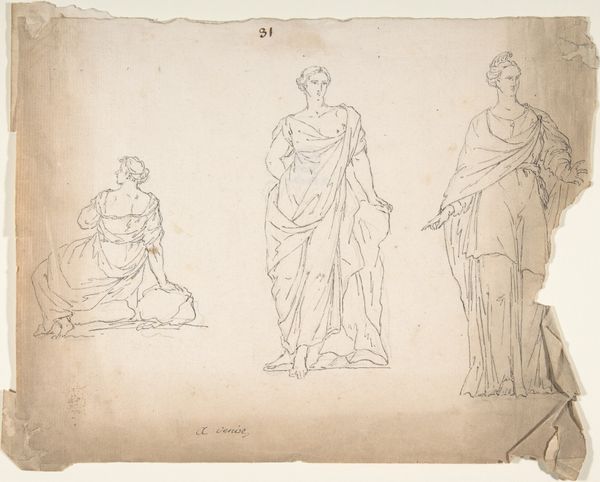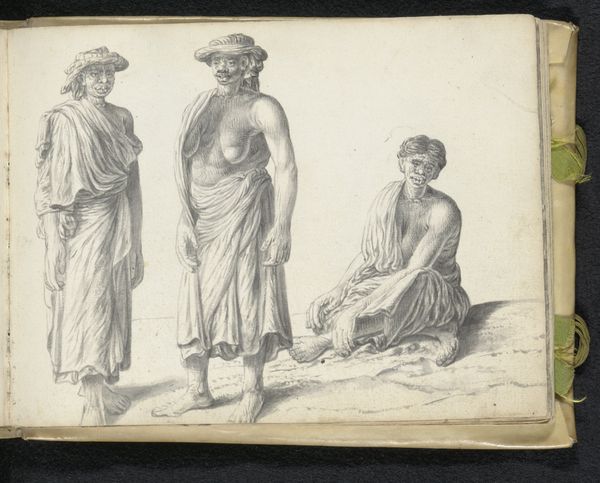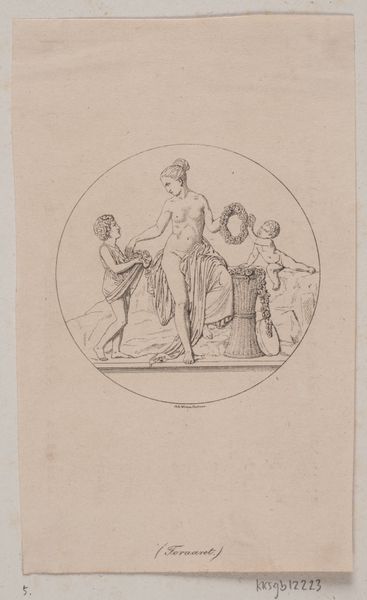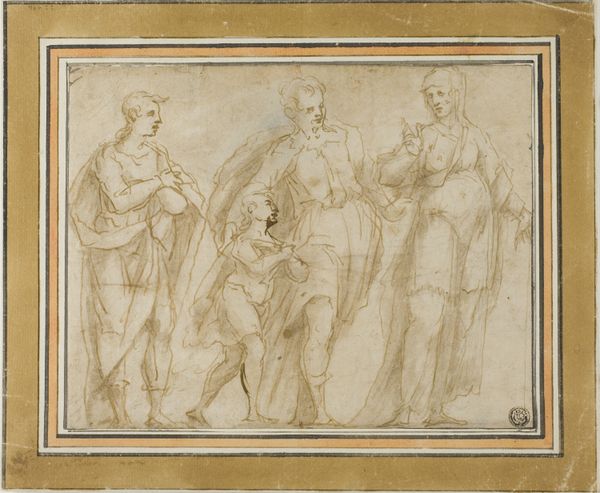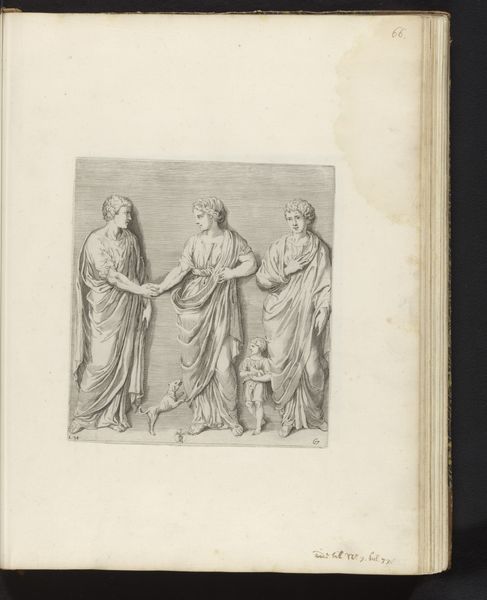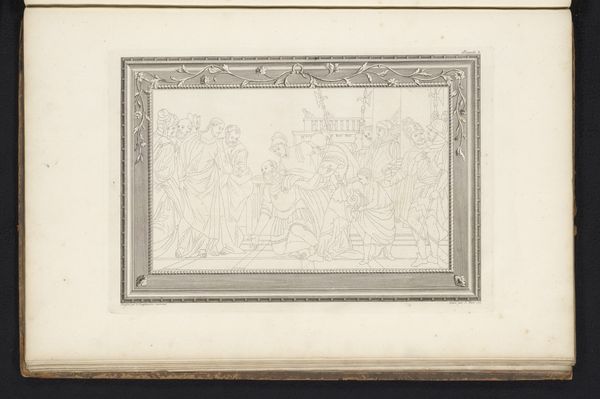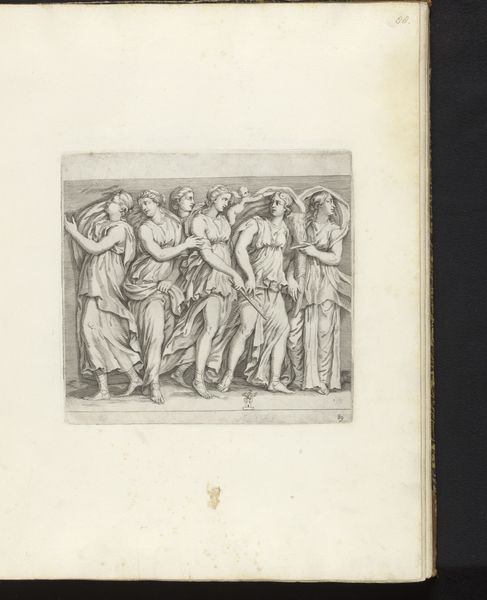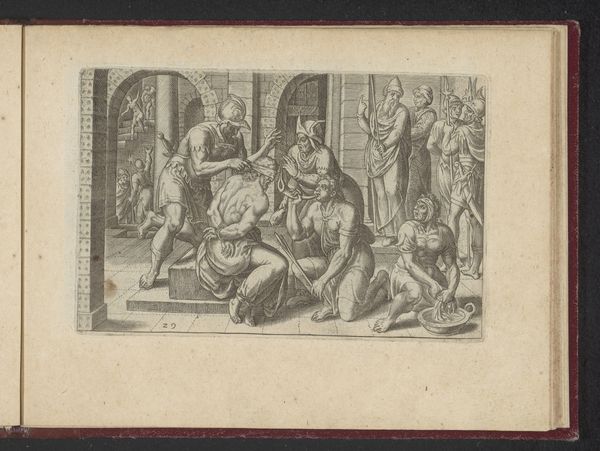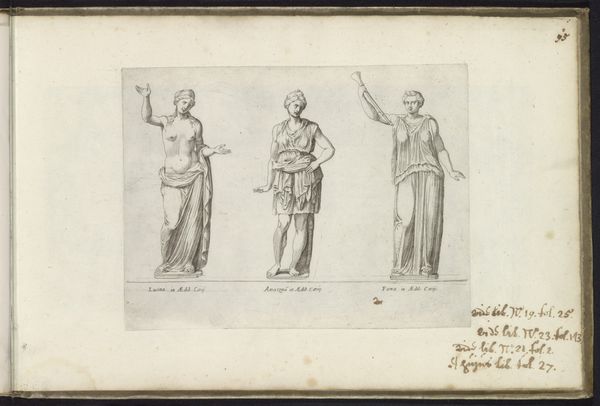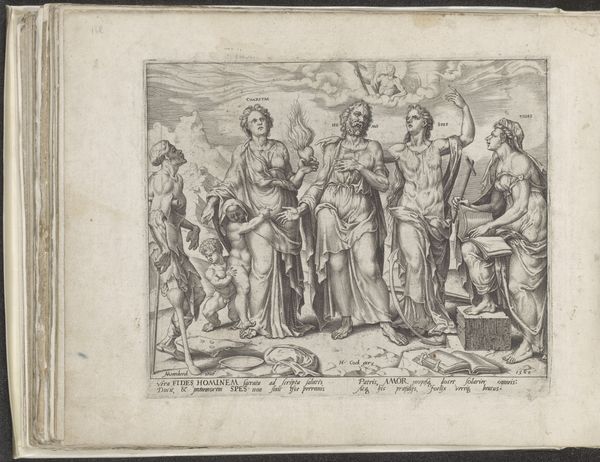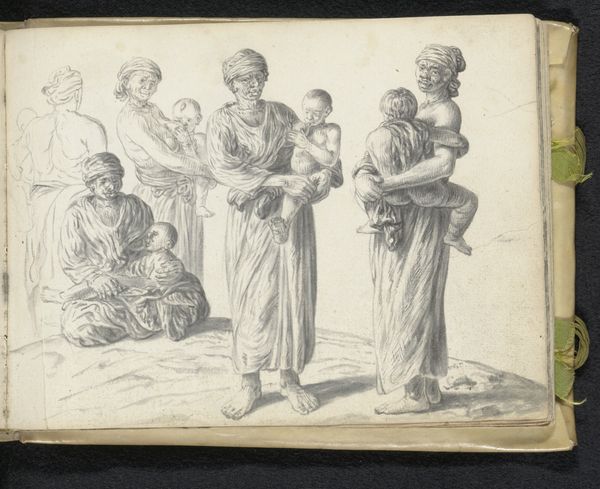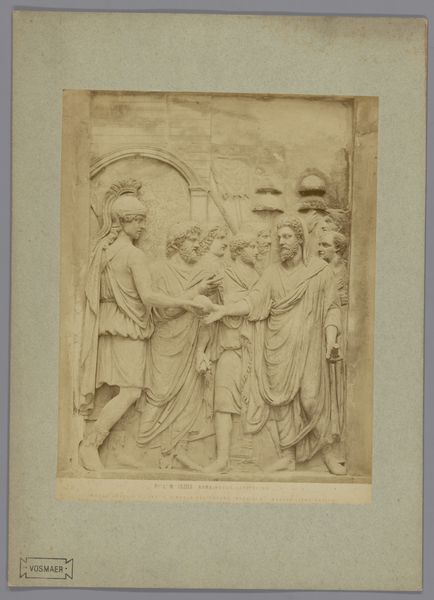
drawing, pencil
#
portrait
#
drawing
#
narrative-art
#
dutch-golden-age
#
figuration
#
coloured pencil
#
pencil
#
genre-painting
Dimensions: height 148 mm, width 196 mm
Copyright: Rijks Museum: Open Domain
Curator: Looking at this, I’m immediately drawn to the contrast in postures; some stand tall, others are seated or hunched. It suggests a journey, or perhaps different roles within a group. What can you tell us about this work? Editor: This is “Four Passers-by on a Slope,” a drawing made with pencil by Esaias Boursse in 1662. Boursse was active during the Dutch Golden Age. This drawing is really a peek into everyday life from that period. Curator: Dutch Golden Age, yes, but with a decidedly classical feel. The draped figures, particularly the one on the left, recall Roman statuary. There’s a gravitas in that figure's pose, quite distinct from the others. Editor: The classical reference is fascinating, especially considering the social function of the toga and drapery from that period. But is that a toga, or is the artist alluding to something different by clothing this individual so specifically? Perhaps an expression of the period's global interests? Curator: It is intriguing, especially with the somewhat ambiguous garb of the others. Could their attire suggest a crossing of social statuses, reflected in these figures through how much of their body is revealed or concealed? Editor: Precisely! And notice the staff held by one of the figures, a universal symbol of travel, pilgrimage, or even authority. The Dutch were, of course, extensive seafarers and colonizers. Is that figure on the slope weary? A sense of temporality in an era of transition and shifting empires comes through for me. Curator: That feeling of weariness definitely underscores the human element in this historical moment, moving beyond the often grand narratives of empires and trade. Editor: It makes you think, doesn't it? About how images distill complicated histories into single frames. I walk away with the resonance of timeless symbols interwoven in Boursse's artwork. Curator: It's a nice bridge from the particular to the universal; allowing the viewers to ponder a singular scene within the broader theatre of history.
Comments
No comments
Be the first to comment and join the conversation on the ultimate creative platform.
